Mexico’s 19 Pros: Top Software Developers
Find the best software development talent in Mexico, ranked for their excellence and track record. Hire skilled professionals who stand out in the tech industry. ↓
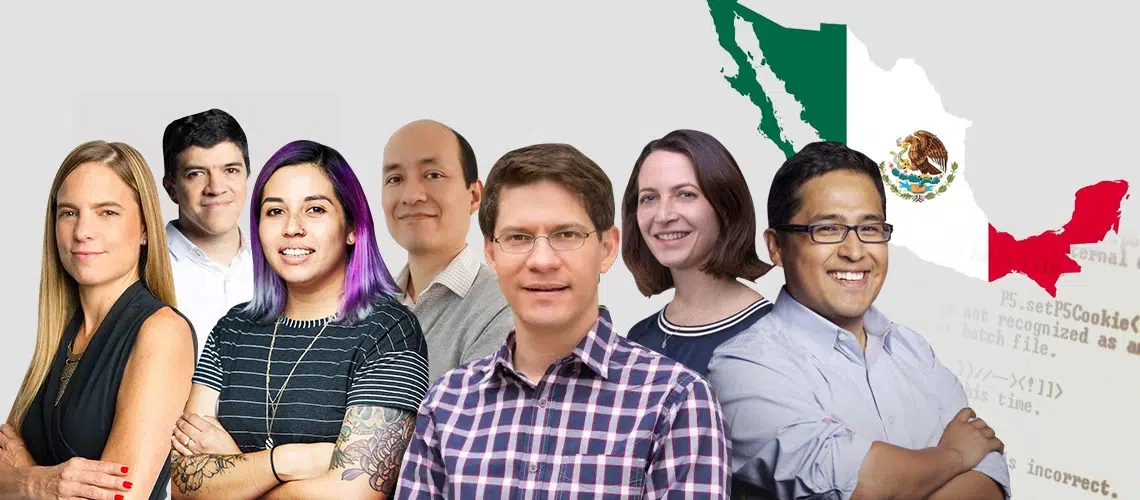
Mexico is rapidly emerging as a tech innovation hub, with a growing ecosystem of talented software engineers making waves on the global stage.
From open-source pioneers and startup founders to AI researchers, tech influencers, and international coding champions, Mexican developers are leading in every corner of the software world. Below is a curated list of the top Mexican software developers currently active, recognized for their impact in open source, entrepreneurial leadership (while still coding), influential tech content, roles at major companies, and international programming competitions.
- Armando Solar-Lezama
- Miguel de Icaza
- Juan Benet
- Serafin Diaz
- Tania Allard
- Oscar Toledo Gutierrez
- Pablo Galindo Salgado
- Federico Mena Quintero
- Eduardo Blancas
- Andres Monroy-Hernandez
- Diego Alonso Roque Montoya
- Marcus Dantus
- Maria Teresa Arnal
- Bismarck Lepe
- Jorge Soto
- Luis Pacheco
- Blanca Trevino
- Anasofia Sanchez Juarez
- Gloria Canales
Now, let’s delve into each of these individuals’ contributions and why they are notable:
Armando Solar-Lezama

Program Synthesis • YASP #3
Armando is a computer scientist known for pioneering program synthesis techniques. Born and raised in Mexico, he earned his undergrad at UNAM and a Ph.D. at UC Berkeley. Armando created the Sketch programming system, which can automatically generate code from high-level specs, a breakthrough in automating coding.
Now an MIT professor, he leads the Computer Assisted Programming Group. In the last 5 years, Solar-Lezama’s research has translated into practical developer tools: his work on program sketching and automated bug-fixing has influenced technologies at companies like Microsoft and Amazon. He’s also an academic mentor to many Latin American students. Armando has received an NSF CAREER Award and MIT’s undergraduate teaching prize, reflecting his impact in both research and education.
He demonstrates how Mexican talent is pushing the frontiers of software development with AI-assisted coding.
- Linkedin: Armando Solar-Lezama
Miguel de Icaza
Miguel is an open-source pioneer, best known as co-founder of the GNOME desktop environment (1997) and later the Mono project and Xamarin for cross-platform .NET development.
His visionary work on GNOME helped establish one of Linux’s most popular GUIs, and Mono/Xamarin enabled C# apps on Linux, iOS, and Android well before official support. After Microsoft acquired Xamarin in 2016, Miguel became a Distinguished Engineer at Microsoft. He has received numerous accolades (including the 1999 Free Software Foundation award) and is recognized as a founding figure in Latin American FOSS movement. Even after leaving Microsoft in 2021, he remains active as an angel investor and open-source advocate.
- Linkedin: Miguel de Icaza
- X (Twitter): @migueldeicaza
- Github: migueldeicaza
Juan Benet
Filecoin is a token with fundamental value. Filecoin is like Bitcoin, but miners amass hard drives instead of hashing computers.
Juan is a computer scientist and entrepreneur, famous for inventing the InterPlanetary File System (IPFS) and founding Protocol Labs.
IPFS is a peer-to-peer protocol for decentralized web/file storage, now core in Web3 and blockchain ecosystems. He also created Filecoin, a crypto-powered decentralized storage network. Under his leadership, Protocol Labs (a Y Combinator alum) grew into a large R&D lab advancing internet protocols. Juan studied at Stanford and moved to the U.S., but remains an inspiration in Latin America’s tech scene. In the last two years, he led Filecoin’s mainnet launch and continues to oversee IPFS improvements impacting millions.
He’s regarded globally as an Internet visionary for his work.
- Linkedin: Juan Benet
- X (Twitter): @juanbenet
- Github: juanbenet
Serafin Diaz
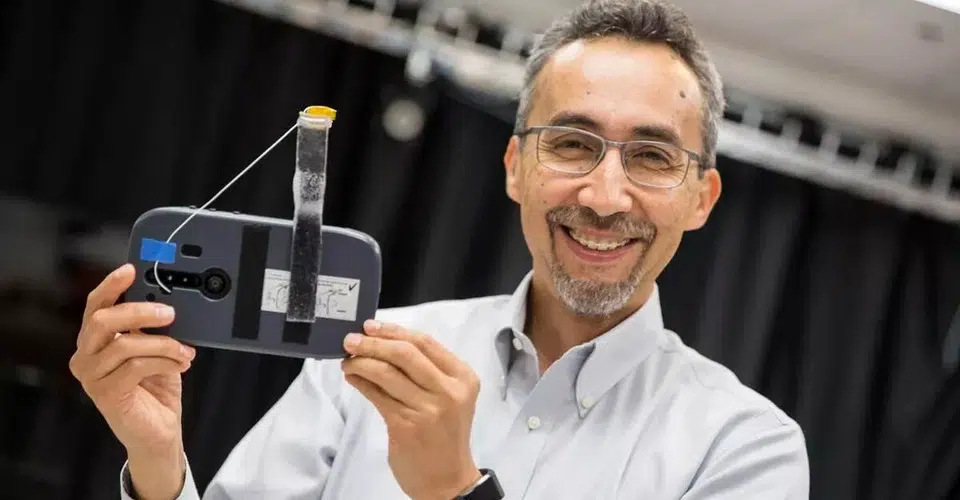
Serafín is a semiconductor engineer who has risen to the upper echelons of the chip industry. Born and educated in Mexico, Serafín built a career at Qualcomm, the world-leading mobile chip company.
He currently serves as Vice President of Engineering at Qualcomm, where he has overseen the development of Snapdragon processors used in billions of smartphones. Díaz’s expertise lies in system-on-chip (SoC) design and wireless communications – he contributed to multiple generations of 4G/5G modem chips. Over the last 5 years, he led teams working on AI acceleration and power optimization in mobile CPUs. Serafín is also active in mentoring young Mexican engineers and is involved with Qualcomm’s initiatives in Mexico’s tech hubs.
As one of the highest-ranking Mexican engineers in a major Silicon Valley firm, his career illustrates the impact Mexican developers have in core technology.
- Linkedin: Serafín Díaz
Tania Allard
Tania is a Mexican-born software engineer and a leading advocate for inclusive open-source communities. With a PhD in computational modeling, she combines deep technical skills with community work. Tania was a Senior Developer Advocate at Microsoft focusing on Azure ML/MLOps, and in 2021 she became Co-Director of Quansight Labs, an open-source incubator.
She’s a well-known PyData organizer – helping run JupyterCon and SciPy – and has contributed to Jupyter, Matplotlib, etc., while championing diversity through PyLadies, R-Ladies, and co-founding AI Inclusive. In the last few years, Tania was also recognized as a Google Developer Expert in machine learning.
She frequently speaks globally about reproducible science and inclusive design, continually elevating Latin America’s presence in data science and OSS.
- Linkedin: Tania Allard
- X (Twitter): @ixek
- Github: trallard
- Website/Blog: trallard.dev
Oscar Toledo Gutierrez
Óscar (often known by handle “nanochess”) is a game developer and programming prodigy famous for creating the world’s smallest chess programs and for winning the International Obfuscated C Code Contest five times.
Programming since age 5, Toledo has mastered extreme code golf and low-level optimization. He wrote a complete bootable OS in just 512 bytes, and developed homebrew game tools for vintage consoles. His tiny chess programs in C and JavaScript are widely admired feats of algorithmic ingenuity. In recent years, Óscar published several books revealing his code (such as Programming Games for Atari 2600 in 2022) and remains active in retro-computing forums.
He maintains a blog posting new demoscene-style challenges, inspiring developers worldwide with his passion and skill.
- X (Twitter): @nanochess
- Github: nanochess
- Website/Blog: nanochess.org
Pablo Galindo Salgado
Pablo is a core developer of the Python programming language and has served on Python’s Steering Council.
He was the Release Manager for Py 3.10 and 3.11. Pablo’s contributions span Python’s parser and many internals, where he’s known for improving error messages and debugging tools (he gave the PyCon 2023 talk “The Snake of Theseus” on evolving Python). With a background in physics, he works at Bloomberg in London on Python infrastructure. Galindo is an active advocate in the PyData community, co-hosts the “core.py” podcast on Python internals, and often speaks about Python’s future. In 2021, he won the Python Software Foundation’s Core Developer Award for his impactful contributions.
Pablo exemplifies Mexican excellence in open-source, helping to steer one of the world’s most popular programming languages.
- Linkedin: Pablo Galindo Salgado
- X (Twitter): @pyblogsal
- Github: pablogsal
Federico Mena Quintero
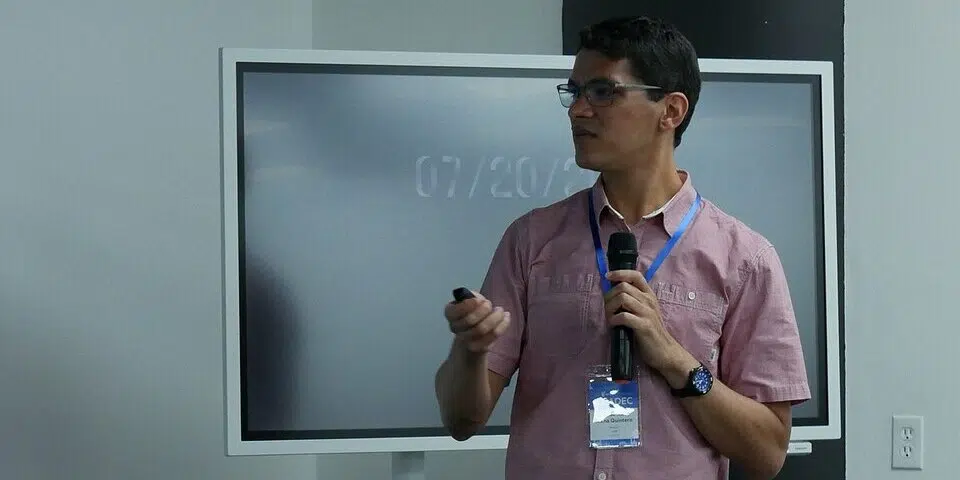
Federico is a free software hacker best known as co-founder of the GNOME project (alongside Miguel de Icaza) in 1997.
In the late 1990s, Federico helped shape GNOME into a leading Linux desktop environment, contributing core components. He also worked on The GIMP and GNOME’s early canvas and file manager. After GNOME’s launch, Federico continued as a key developer at companies supporting Linux (Red Hat, then Novell/Ximian). He has been a longtime maintainer of GNOME’s librsvg library and an advocate for using Rust in GNOME for safety. In recent years, Mena Quintero remains active in the GNOME Foundation.
With over two decades in open source, Federico’s work – from Midnight Commander improvements to pushing modern tools – has cemented him as a Mexican open-source legend.
- Linkedin: Federico Mena Quintero
- Github: federicomenaquintero
⭐ Best Tech Recruiters Driving IT Talent in Mexico
Eduardo Blancas
Eduardo is a data scientist turned entrepreneur, known for open-source contributions in data engineering and for founding Ploomber (a workflow tool for data pipelines).
A graduate of Tecnológico de Monterrey and Columbia University, Eduardo co-created Ploomber as an open-source framework to build and deploy reproducible machine learning pipelines in Python. In 2021, he took Ploomber through Y Combinator, serving as CEO while still actively coding the platform. Eduardo has written extensively about data science best practices on Medium and has spoken at PyData and JupyterCon events. Within the last 5 years, he’s helped data teams at companies adopt better pipeline tooling via Ploomber. He also contributes to open-source projects in the Jupyter ecosystem.
Eduardo’s work bridges software engineering and data science, and showcases Mexican innovation in the AI/ML tooling space.
- Linkedin: Eduardo Blancas
- X (Twitter): @edublancas
- Website/Blog: blancas.io
Andres Monroy-Hernandez
Andrés is a social computing researcher and software designer, noted for creating online communities for creative learning. A graduate of Tec de Monterrey, he earned his Ph.D. at MIT. Andrés led the development of the Scratch Online Community at the MIT Media Lab, which has engaged millions of young programmers worldwide.
He later joined Microsoft Research in the FUSE Labs, where he built Shoebox (a storytelling platform) and studied social media in civic contexts. In 2019, Monroy-Hernández co-founded Snap Research’s human-computer interaction team and also became a professor at Princeton University. In the last 5 years, he has focused on augmented reality and mobile creativity apps at Snap Inc., and on collaborative learning tools in academia. Andrés has been named in MIT Technology Review’s Innovators Under 35.
He exemplifies how Mexican developers influence social software – from Scratch’s remix culture to Snapchat’s creative tools – all while coding and researching new technologies.
- Linkedin: Andrés Monroy-Hernández
- X (Twitter): @andresmh
- Website/Blog: andresmh.com
Diego Alonso Roque Montoya
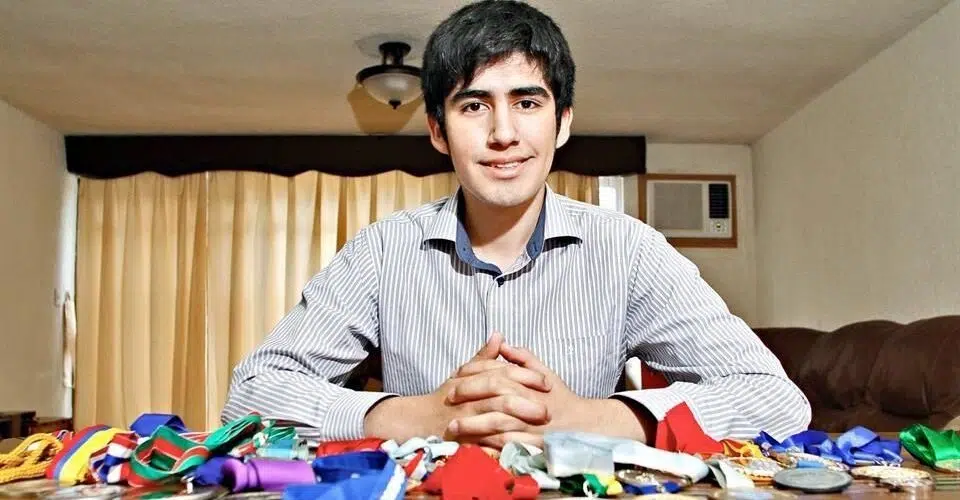
Diego is a competitive programming champion turned AI researcher.
As a high schooler, he earned Mexico a rare gold medal at the International Olympiad in Informatics (2014) and later competed in the ICPC world finals during college. Diego studied math and computer science at MIT. He has worked at cutting-edge finance/AI firms – currently as an engineer at Dark Forest Technologies, a quantitative trading company. Diego’s algorithmic skills are renowned: he achieved a top-10 ranking on Codeforces and contributed problems to programming contests. In recent years, he has applied his skills to machine learning research at MIT’s Center for Brains, Minds & Machines, exploring how AI can learn and reason.
Diego represents a new generation of Mexican coders excelling internationally in competitive programming and pushing AI forward.
- Linkedin: Diego Alonso Roque Montoya
- Github: diego9627
Marcus Dantus
Marcus is a serial entrepreneur and angel investor, widely recognized as a champion of Mexico’s startup ecosystem. A computer science graduate of ITESM, Marcus has spent nearly 25 years creating and mentoring tech companies. He founded Mexico’s first internet portal Mexico.com in the 1990s, and later startups in VoIP (Simitel) and e-health (Innovamedica), winning the Intel Challenge twice.
In the past 5 years, Dantus has led Startup Mexico, the country’s first large startup incubator hub, fostering hundreds of new companies. He also launched and headed Wayra Mexico to fund high-impact IT ventures. Marcus teaches entrepreneurship at IPADE business school and frequently appears as a speaker and Shark Tank México investor. His mission remains driving innovation in Mexico – as evidenced by his involvement on government councils and advising 50+ companies.
Marcus studied CS and Communications and stands as an inspiration for Mexican technologists bridging coding and business.
- Linkedin: Marcus Dantus
Maria Teresa Arnal
María is a prominent tech executive with engineering roots, known for leading major tech multinationals in Latin America. She earned an undergraduate degree in engineering in Venezuela and an MBA at Columbia. Arnal served as Country Manager for Google Mexico and later as Managing Director of Twitter Latin America, where she worked to grow Twitter’s user base and ad technology in the region.
In 2018, she became the Head of Stripe in Latin America, overseeing the expansion of Stripe’s developer-focused payments platform across Mexico, Brazil, and beyond. Though her roles are managerial, Mariate has consistently championed local software developers – for instance, launching Stripe’s Spanish-language docs and outreach to Mexican startups. She is also President of the Mexican Internet Association and co-founder of a digital education institute. In the past 5 years at Stripe, she has led engineering teams to adapt global fintech products to Latin American needs.
Arnal’s mix of technical understanding and leadership make her one of Mexico’s most influential tech figures.
- Linkedin: María Teresa Arnal
- X (Twitter): @mariatearnal
Bismarck Lepe
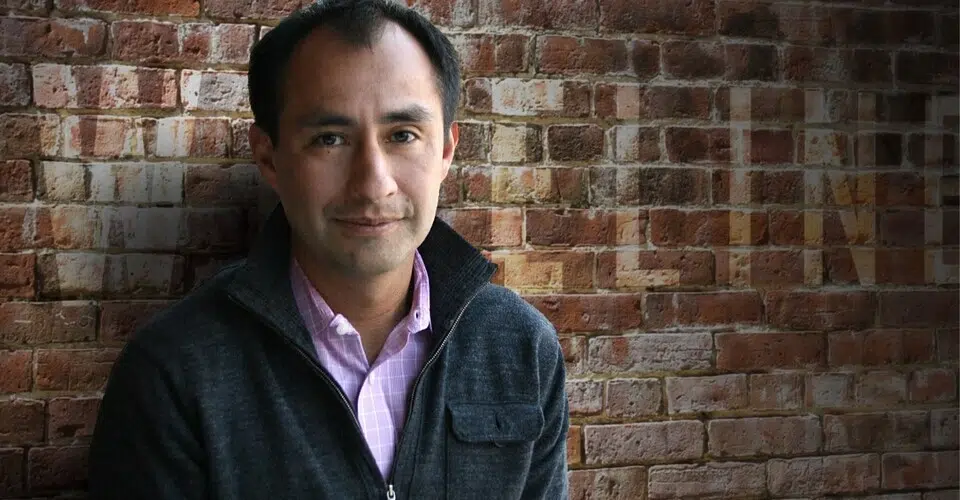
Bismarck is a tech entrepreneur who has leveraged his engineering background to build global companies. The son of migrant workers from Jalisco, Bismarck earned a BS in Computer Systems at Stanford. He was an early employee at Google, then in 2007 founded Ooyala, a video streaming platform (acquired for $400M).
In 2014, he returned to Mexico to found Wizeline, a software development and IT services company that has grown to 1,200+ employees across Mexico, Vietnam, and the US. As CEO of Wizeline, Bismarck remained hands-on with technology – driving the development of AI-powered product management tools. In the past 5 years, he has also co-founded MiSalud (a telehealth app) and Cerby, continuing to write code in early stages. Bismarck often speaks about bridging Silicon Valley and Mexican tech talent.
Proudly Mexican-American, he’s now also a “Shark” investor on Shark Tank México, inspiring and funding the next generation of developers.
- Linkedin: Bismarck Lepe
- X (Twitter): @bismarcklepe
Jorge Soto
Jorge is a software developer-turned-entrepreneur focused on civic tech and health tech. He co-founded CitiVox in 2010 (with Oscar Salazar), creating a mobile platform for citizens to report local issues like electoral fraud or infrastructure problems.
CitiVox was one of the early Mexican startups using tech for government transparency. After CitiVox, Jorge joined the Mexican government’s digital unit and helped develop open data tools for Mexico’s President’s office. In 2014, he gained international attention with a TED Talk on a low-cost cancer detection device he was prototyping. Over the last 5 years, Soto has split time between Silicon Valley and Mexico City: he worked at Stanley Black & Decker as Innovation Director, and recently has been coding a new fintech app for financial inclusion. A past MIT TR35 awardee, Jorge continues to hack on projects with social impact.
His mix of coding skill and passion for solving real-world problems highlights the positive contributions of Mexican developers.
- Linkedin: Jorge Soto
- X (Twitter): @SotoMJorge
Luis Pacheco
Luis is a software developer and innovator blending education and 3D technology. He gained recognition by developing ScratchyCAD, an educational CAD software that teaches users (especially kids) to design 3D-printable models using block-based coding.
Seeing that schools had 3D printers but lacked tools to create original designs, Luis built ScratchyCAD inspired by MIT’s Scratch, but for 3D modeling. This work earned him a spot as an MIT Technology Review Innovator Under 35 in 2016 (Latin America). Earlier, he co-founded MakerMex, a startup that produced affordable 3D printers via a successful Kickstarter. In the past 5 years Pacheco has focused on improving STEAM education in Mexico – partnering with schools to adopt ScratchyCAD and coaching students in robotics competitions. He continues to refine the ScratchyCAD platform (adding VR/AR features for design) and leads a maker community in Guadalajara.
Luis’s work democratizes technology, exemplifying the creative coding talent in Mexico’s developer community.
- Linkedin: Luis Pacheco
- Github: luigipacheco
Blanca Trevino

Blanca is a trailblazer in Mexico’s IT services industry and an inspiration for women in tech. Though more an entrepreneur than a coder, her impact on software development in Mexico is profound. In 1982 she co-founded Softtek in Monterrey, which has grown into Latin America’s largest independent software development and IT outsourcing company.
Under Blanca’s leadership as President/CEO, Softtek pioneered the “nearshore” model, proving that Mexican engineers could deliver world-class software to global clients. In the last 5 years, she has driven Softtek’s expansion into digital transformation services, cloud, and cybersecurity. Treviño is the first woman inducted into Endeavor’s Entrepreneur Hall of Fame and has been named one of the most powerful women in Mexico by Forbes. While not a developer herself, she studied computer systems and early on wrote code for clients. She remains closely involved in Softtek’s technology strategy, championing initiatives to train new Mexican software talent.
Blanca’s story showcases how a Mexican-founded company can thrive in the global software arena.
- Linkedin: Blanca Treviño
Anasofia Sanchez Juarez
Anasofía is a tech evangelist who has played a key role in building developer ecosystems for big tech in Mexico.
Trained as a computer engineer, she spent six years at Google, where she helped launch YouTube in Mexico and later led Google’s Developer Relations for Latin America. Anasofía then joined Facebook Mexico as Head of Business Marketing, interfacing with app developers and startups to leverage Facebook’s platform. In 2018, she became Director of Startup Grind Mexico, mentoring entrepreneurs and organizing one of the country’s largest tech conferences. In the last 5 years, Anasofía has been particularly active in blockchain and fintech circles – she co-founded a women-in-blockchain group and often speaks about Web3 opportunities. Currently, she’s the LATAM Operations Director for Waze (Google) or similar community-driven projects. Known for her energy on stage and on social media, she has become an influencer encouraging more Mexican youth (especially women) to code and innovate.
Sánchez Juárez demonstrates how a software background can evolve into a leadership role connecting tech companies with local developer communities.
- Linkedin: Anasofía Sánchez Juárez
Gloria Canales
Gloria is a technology strategist credited with driving Amazon’s successful launch in Mexico. With a background in computer engineering, Gloria became Amazon Mexico’s Principal of Product and Program Management in the mid-2010s.
She played a major role in Amazon’s launch in Mexico (2015) – coordinating software localization, payment integration (like supporting cash payments via Oxxo), and building the supply chain tech. Canales ensured Amazon’s website and mobile app were tailored for Mexican consumers, effectively bridging Seattle engineering teams with Mexican market needs. In the last 5 years, Gloria moved to Amazon’s Seattle HQ as a senior manager, where she has led global programs improving Alexa’s voice-tech for Spanish speakers and expanding Amazon’s Prime Video tech in Latin America. She’s passionate about UX design and often mentors women in product management.
Gloria’s behind-the-scenes contributions illustrate how Mexican developers and product experts are influencing Big Tech expansions.
- Linkedin: Gloria Canales
Wrap Up
These experts represent exceptional talent, making them extremely challenging to headhunt. However, there are thousands of other highly skilled IT professionals in Mexico available to hire with our help. Contact us, and we will be happy to discuss your hiring needs.
Note: We’ve dedicated significant time and effort to creating and verifying this curated list of top talent. However, if you believe a correction or addition is needed, feel free to reach out. We’ll gladly review and update the page.
Frequently Asked Questions
Yes, Mexican developers have built a strong reputation in areas like open source, AI, blockchain, and software engineering. The country has a mature tech ecosystem supported by universities, coding bootcamps, and a growing startup culture. Many professionals work with international companies while contributing to open-source communities worldwide.
Mexico has more than 220,000 professional software engineers, with most based in Mexico City, Guadalajara, and Monterrey. The talent pool is supported by large IT outsourcing firms, R&D centers, and a rising number of tech startups. Government investment in digital initiatives has also accelerated growth in the developer community.
Entry-level engineers earn about $10,000 to $15,000 annually, while mid-level developers average $20,000 to $35,000. Senior professionals with specialized expertise or international clients can reach $45,000 to $70,000 per year. Compensation is competitive relative to cost of living, making Mexico attractive for both local and global projects.
Prominent figures include Juan Benet, Tania Allard, Miguel de Icaza, Armando Solar-Lezama, Oscar Toledo Gutierrez, Pablo Galindo Salgado, Andres Monroy-Hernandez, and Blanca Trevino. Their contributions span open-source development, decentralized systems, data science, and leadership in major tech companies.
Mexican engineers combine technical skill with cultural and time zone compatibility for North American clients. English proficiency is widespread, and many developers have direct experience working in international teams. With competitive rates and a strong record of innovation, Mexico is a reliable source of skilled software talent.


